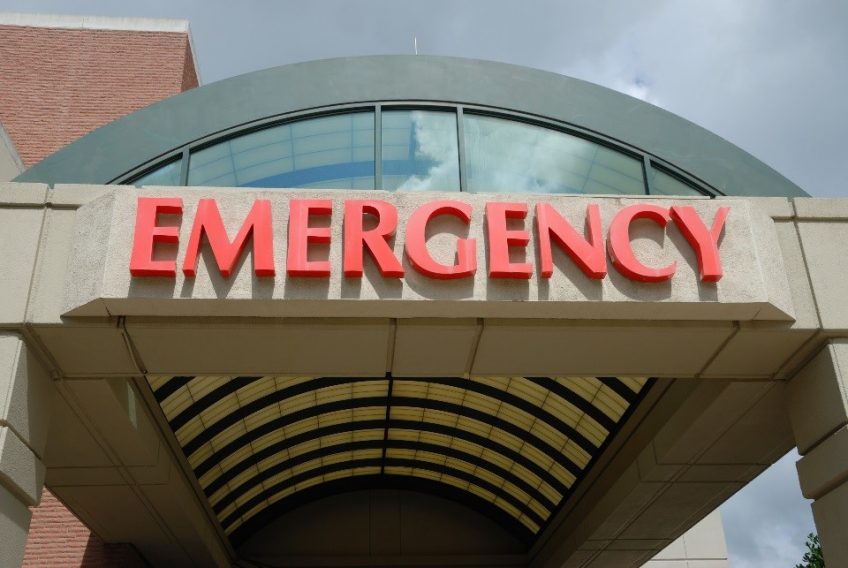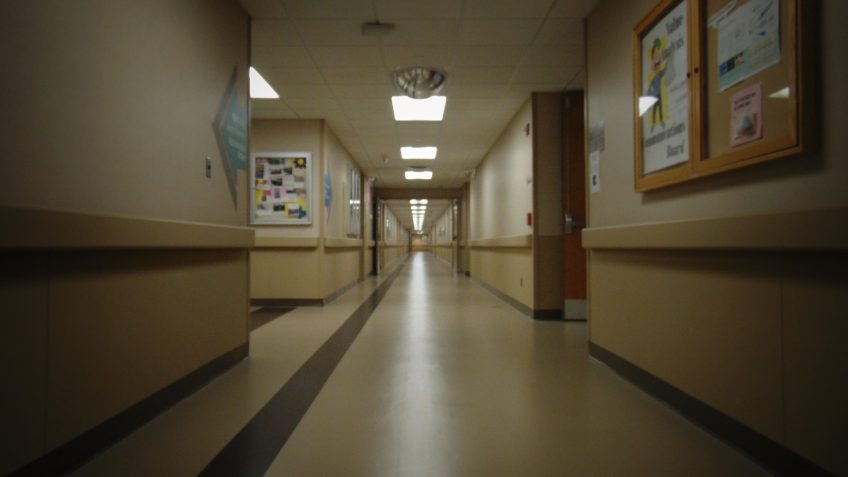Lakeland Medical Malpractice Attorney
Florida Medical Malpractice Attorney
Find Out if You Have a Florida Medical Malpractice Case | Get Help from a Medical Malpractice Attorney in Lakeland FL
In the US, medical malpractice harms almost 800,000 victims each year. That’s a worrying number of people suffering long-term damage as a result of clinical negligence. If you’re hurt due to a clinical error, you deserve justice.
You deserve compensation for the pain and suffering you’ve experienced. And you need top medical malpractice attorneys in Florida on your side.
That’s where Russo Law can help. Our medical malpractice attorneys are standing by, waiting to help you file a lawsuit and pursue justice. We have the experience and the commitment to hold care providers accountable for their actions.
And all initial consultations with our legal team are free. To discuss making a medical malpractice claim, schedule a consultation with our negligence lawyers today.
What Is Medical Malpractice?
Medical professionals are expected to follow strict standards when they’re treating patients. They must exercise their duties with a certain level of care and professionalism. Care which falls below this level of care may be considered medical malpractice.
What is the standard of care In Florida? We can find the answer in the Florida Statutes. Put simply, it’s a level of care, skill, and treatment which other reasonable healthcare providers find acceptable. So, if a medic provides care which a majority of other medics would deem negligent, there may be a claim.
Types of Medical Malpractice Claims
Medical malpractice claims may fall into a few categories:
- Misdiagnosis
- Failure to make a diagnosis
- Wrong diagnosis
- Unnecessary procedures
- Insufficient aftercare
As examples, if you experienced any of the following, then you may have a malpractice claim:
- Missed diagnosis or failure to recognize an urgent condition
- Delay in diagnosis or delay in getting appropriate treatment
- Inappropriate or wrong procedure for the condition complained of
- Prescribing medications that are improper or contraindicated
- Medical procedures performed without consent
- Failure to timely make a specialist referral, transfer, or consultation
- Nursing or hospital negligence (such as failure to use bed rails to prevent falling)
- Engaging in unnecessary diagnostic testing or unnecessary medical treatments
- Surgery or treatment of the wrong body part or wrong site
- Wrongful birth, including failure to advise of genetic abnormalities
- Leaving foreign objects in the body following procedures
- Improper maintenance or use of a surgical robot
As attorneys for medical malpractice in Florida, we handle a variety of negligence claims. They all have one thing in common: the victims deserve justice. And we do everything possible to ensure this happens.
Proving a Medical Malpractice Claim
It’s not always easy to prove medical malpractice in Florida. The “burden of proof” falls on the victim, so you need enough evidence to make your claim.
To be successful, you must show that the clinician’s negligence directly caused you harm. It’s not enough to show injury – the medical professional must be at fault. That’s why it’s so important to hire a medical malpractice attorney in Florida to help. We understand exactly what’s required to make a successful claim.
Proving Your Claim: Expert Review Process
The first step in any malpractice claim is the expert review. A medic with the same credentials as the at-fault medic reviews the case. If they think there’s grounds for action, they’ll sign an affidavit to say the claim should proceed.
We first request and review your medical records. We then determine the strengths and weaknesses of your claim. This helps us understand how likely you are to succeed.
This process is important so that only good malpractice cases, from a standpoint of both liability and damages, are brought to court and so that good doctors are not unnecessarily burdened with lawsuits arising from medical care.
Our team will help you identify if there’s a claim available to you.
Medical Malpractice Cases Against Hospitals
In Florida, suing a hospital is not an easy thing to do. A number of tort reforms in Chapter 766, Florida Statutes and judicial opinions have changed the various legal remedies available against hospitals. Most hospitals want you to believe that the hospital is merely a place where doctors can practice medicine and that the hospital owes you, as the patient, essentially no duty of care except for the facility itself.
If you need to sue a hospital for medical malpractice in Florida, you and your lawyer should carefully determine what legal theories are available and which ones support your case.
Hospitals also carry insurance to cover medical mistakes committed by the doctors, the nurses, and other staff not only for their direct liability but also for various legal theories of vicarious liability.
Some of these legal theories may apply to your case while others may not. Our Florida medical malpractice attorneys can explain what theories may be helpful to your case.
Negligence of Nurses or Other Hospital Employees
The most direct pathway to holding a hospital responsible for medical malpractice in Lakeland FL is through actions of employees of the hospital. Nurses, nursing assistants, therapists, and a variety of other “hospital personnel” are frequently employees of the hospital.
When an employee of the hospital makes a mistake, you can sue the hospital under the doctrine of “respondeat superior”. There’s no need to sue the employee, but you can.
Florida courts will only hold nurses responsible if they:
- Must perform a discretionary or ministerial act
- Must exercise their own independent judgment
(See Siegel v. Husak, 943 So. 2d 209, 213 (Fla. 3d DCA 2006)).
Nurse’s Duty to Supervise Patient Care
Nurses are also supposed to “supervise” the care of their patients (See Evenson v. Miami Medical Center, Inc., 128 So. 2d 626 (Fla. 3d DCA 1961)). This does not mean that the nurse’s “supervision” replaces the care of a doctor but it does mean that a nurse should provide contact that is “reasonable” under the circumstances.
Doctors Are Usually Considered “Independent Contractors” at Hospitals for Liability Purposes
On the other hand, the doctors at the hospital are almost always “independent contractors” in Florida for the purpose of limiting liability. The general rule is that a hospital is not legally responsible for mistakes made by physicians who are independent contractors. This is precisely why just about every physician in the hospital is considered an independent contractor and the admission documents that you sign will usually explicitly designate them as independent contractors.
Non-Delegable Duty and Apparent Agency
The theories of nondelegable duty and apparent agency are most often used in Florida medical malpractice cases to hold the hospital responsible for a doctor’s wrongdoing.
There are few areas of law more confusing than apparent agency and so-called “non-delegable duties” of hospitals in Florida.
These legal theories are meant to prohibit hospitals in Florida from avoiding legal liability due to the “technicality” that its doctors are “independent contractors.”
In a case alleging a theory of apparent agency, the plaintiff’s claim is that the hospital did not disclose the fact that its doctors were not employees (and, hence, is not legally responsible for their mistakes should one occur) and that the plaintiff “relied” upon the representations made by the hospital in choosing the hospital for care.
On the other hand, the idea behind a “nondelegable duty” under Florida law is that the hospital performs such an important function to society that allowing the hospital to avoid legal liability by using independent contractors is not allowed.
Emergency Services
In the case of Newbold-Ferguson v. AMISUB, the court system imposed a non-delegable duty for hospitals that provide emergency rooms because a patient has little, if any, control over who will be treating the patient for an emergency. This duty is essentially part of an “implied contract” between the patient and the hospital for medical treatment, but exists in ER cases only under the current state of the law as these cases are fact specific.
However in 2019, Florida’s Third DCA certified a conflict with Wax v. Tenet (see below) and held that a hospital emergency room does not have a non-delegable duty to provide non-negligent medical care under any statute or under a theory of implied contract in Tabraue v. Doctors Hospital, Inc.
Courts Are Divided on Whether Hospitals Can Delegate Anesthesia Services
The appellate courts in Florida are currently split on whether a hospital has a non-delegable duty to provide anesthesia services (See Wax v. Tenet Health, 955 So. 2d 1 (Fla. 4th DCA 2006) and Tarpon Springs v. Reth, 40 So. 2d 823 (Fla. 2d DCA 2010)).
Surgical Robot Cases
If your case involves a question about whether a surgical robot failed, malfunctioned, or broke during a medical procedure, you will need an experienced medical malpractice attorney to dig into the hospital’s records for maintenance of the surgical robot. Negligent maintenance of a surgical robot was announced as a basis for nondelegable duty against a hospital in Payas v. Adventist Health System/Sunbelt, Inc. d/b/a Florida Hospital Celebration, et. al., Case Number 2D16-3615 (Fla. 2d DCA 2018).
Hospital Comprehensive Risk Management Programs in Florida
Florida has enacted section 766.110, Fla. Stat. which creates a statutory basis for legal liability against hospitals and health care facilities for problems in hospital administration that cause injury to patients
This cause of action has generally been regarded as liability for “negligent hiring and retention” of physicians or staff (See Insinga v. LaBella, 543 So. 2d 209 (Fla. 1989)). The hospital must exercise due care in choosing doctors, nurses, or other hospital staff to work within its organization.
The hospital should not hire a physician or medical provider who has an inappropriate criminal history, false or misleading credentials that would have been found in a background check, or conduct that is otherwise inappropriate for the position of trust that is inherent in the medical profession.
Section 766.110 also involves the responsibility of the hospital to create an appropriate “comprehensive risk management” program with respect to the hospital’s size, location, scope of services, physical configuration, and other relevant factors. The statute was amended as recently as 2011 and may allow lawsuits for other causes of action, however, such legal theories are not well established under the law at the moment.
Why Is it Important to Sue The Hospital if You Can?
Florida law only requires that doctors with hospital privileges carry $250,000 in malpractice liability insurance (see section 458.320, Fla. Stat.). The most significant source of financial recovery for you and your family after a medical mistake is most likely going to be the hospital or a medical facility. Many Florida hospitals carry far more than the statutorily mandated $5 million in insurance.
In recent years, hospitals and health care facilities have done anything and everything that they can do to eliminate or limit claims against them for medical malpractice through legislative tort reform and seeking judicial opinions unfavorable to patients.
This is why getting help with your case is essential – contact a local medical malpractice attorney in Lakeland FL for help now.
Medical Malpractice Arbitration
When people go to see a doctor or get admitted to a hospital for a medical problem, they are frequently asked, often under duress, to sign a medical malpractice arbitration agreement. Your medical malpractice attorney may be able to challenge the validity of these arbitration agreements and can help you understand the terms of the medical malpractice arbitration agreement that you signed. Caps for refusing to accept an admission of liability and an offer of voluntary binding arbitration were upheld in Poole v. DeFranko.
“Reckless Disregard” Standard for ER Cases
If your medical malpractice case involves an admission through the ER (where there is a legal obligation for the provider to treat you), then your case may be subject to the “reckless disregard” standard described in section 768.13, Fla. Stat. (also known as the “Good Samaritan Act). This is yet another complicated legal issue to which many lawyers and judges do not even have a firm grip on.
The legal definition of “reckless disregard” is not well understood, even by lawyers and judges. The duty of a medical provider who is providing “emergency services” (see Cantore case) is defined in the statute in terms of “providing, or failing to provide, medical care or treatment under circumstances demonstrating a reckless disregard for the consequences so as to affect the life or health of another.”
In essence, the reckless disregard standard raises the bar to suing doctors in the ER (and subsequent treating doctors) “prior to the time the patient is stabilized and is capable of receiving medical treatment as a non-emergency patient.” This immunity is extended when the patient requires surgery as a result of the emergency within a reasonable time after the patient is stabilized after surgery.
This law has unintended consequences for legal liability. For instance, if you were discharged from a hospital but were unstable, then it is highly unlikely that the hospital is ever going to admit that they discharged an unstable patient (because it is medically improper to discharge an unstable patient under just about any circumstance).
Claims involving the reckless disregard standard in medical malpractice claims in Lakeland FL are complex – consult a medical malpractice attorney as soon as possible for advice.
Medical Providers Are Only Protected in Emergencies
Additionally, if you were admitted to the hospital but no urgent treatment or testing was done, then the hospital will likely try to rely on the reckless disregard standard. However, relying on the reckless disregard standard is essentially an admission that time is of the essence. The Florida Supreme Court in Cantore v. West Boca Medical Center (Fla. 2018) held that medical providers must be treating the patient as an emergency patient in order to get the reckless disregard standard.
COVID-19 Immunity Under the CARES Act and Section 768.38, Fla. Stat.
Temporary immunity for medical providers and hospitals was provided for in the 2020 CARES Act passed by Congress. In March 2021, the Florida Legislature created section 768.38, Fla. Stat. which provided a broad, sweeping immunity for businesses and medical providers that includes liability for the spread of COVID-19 or failure to adequately treat COVID symptoms.
These immunities provide a virtual bar to most COVID-related lawsuits. However, the immunity does not cover other medical malpractice cases, so you should seek specialist advice if you think you have a claim.
Did You Have a Bad Outcome? Ask a Medical Malpractice Lawyer if You Have a Claim for Medical Negligence
If you have doubts about whether the medical care that you received was appropriate under the circumstances, there is no shame in seeking professional legal help. Even if you do not have a good medical malpractice case, you will likely feel better knowing that you have at least had it reviewed and had the discussion with a medical malpractice attorney.
Furthermore, it is important to realize that every bad outcome is not due to medical negligence and that every medical error does not necessarily cause a bad outcome.
Read more to learn about different terms used in Florida medical malpractice cases.
Find Out if a Medical Malpractice Attorney in Lakeland FL Thinks You Have a Malpractice Case
If you or a loved one has suffered injury or death as a result of medical malpractice in Lakeland FL, please contact a local medical malpractice attorney for your free case review. Our specialist team can offer you a free and confidential consultation to discuss whether medical malpractice has occurred and what your next actions should be under the circumstances.
As an experienced medical malpractice attorney in Lakeland FL, if we believe that we can help you, we absolutely will.
Click here for directions with Google Maps
Quick Answers to Common Medical Malpractice Questions
☑ How long do I have to file a medical malpractice lawsuit?You normally have 2 years from the date of the incident, however, you may have more time under certain circumstances.
Yes. This is a good idea, especially if you want to have your case reviewed by attorneys. Medical providers have up to 10 days to give you a copy of your records after a request, however, you may be obligated to pay for them.
Florida does not require all doctors to carry malpractice insurance, however, doctors who have staff privileges are required to have at least $250,000 in coverage.
The Florida Department of Health investigates complaints received, including medical malpractice complaints filed by attorneys, and determines whether the doctor has done something to warrant professional discipline. A complaint form is available on the Florida DOH website to file a formal complaint against a doctor.
There is not an automatic right to attorney fees and costs if you win your medical malpractice case in court. The attorney fees generally come out of the amount awarded to the plaintiff, however, you may be able to get compensation for attorney fees if the jury awards more than 25% of what you proposed in writing to the defendant before trial.
More Information from Medical Malpractice Attorneys
For recent legal topics, please see our personal injury blog or see answers to frequently asked questions. To learn more about our services, read about our firm or check out these testimonials. And to discuss Florida medical malpractice attorney fees, contact us directly.
We help clients with medical malpractice cases located in the Lakeland and Winter Haven areas of Polk County and the cities of Bartow and Haines City, Florida.







